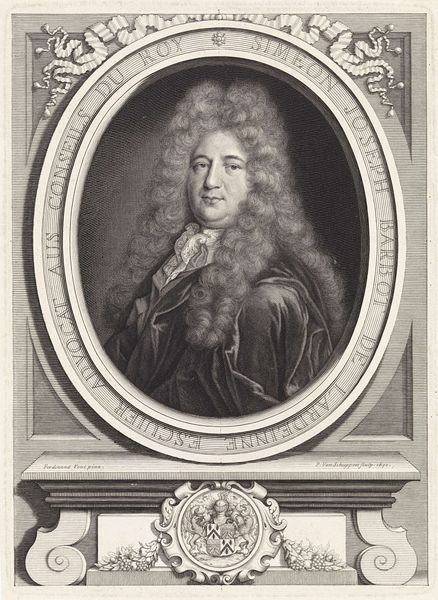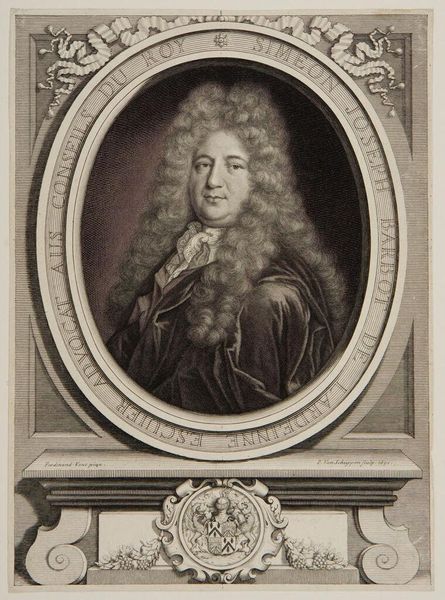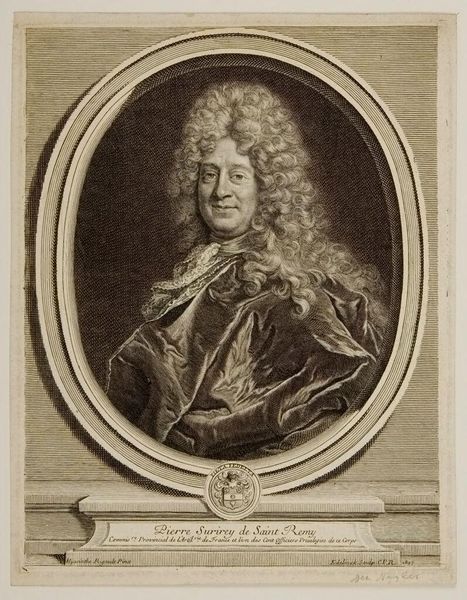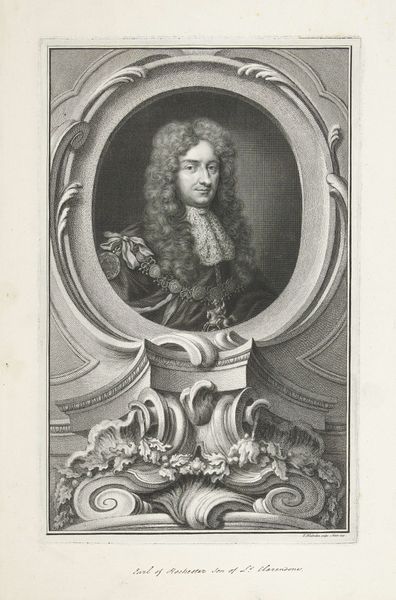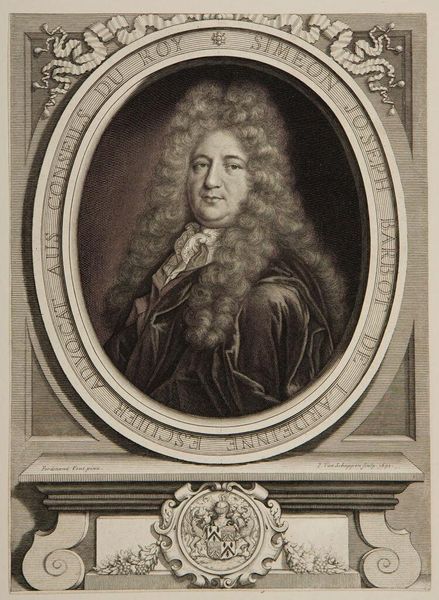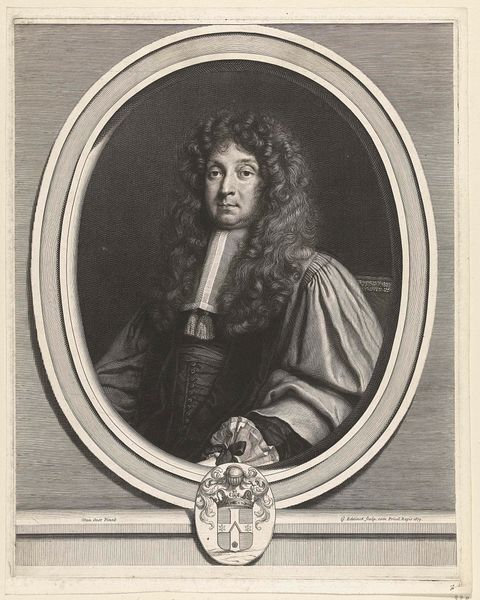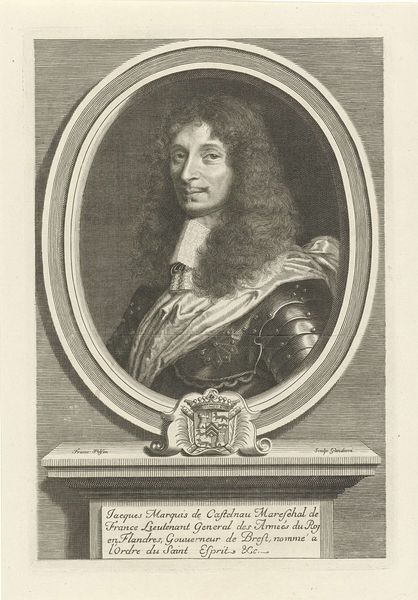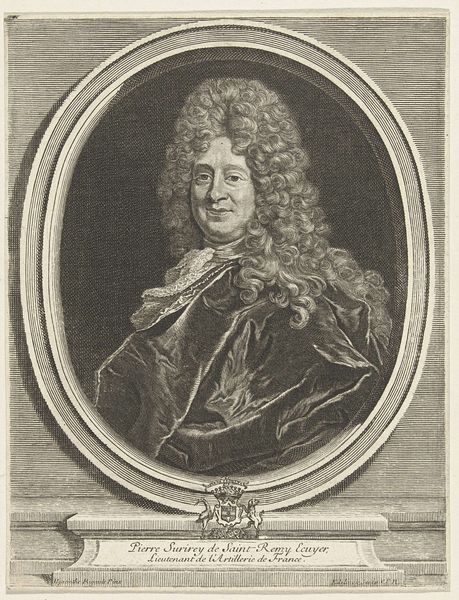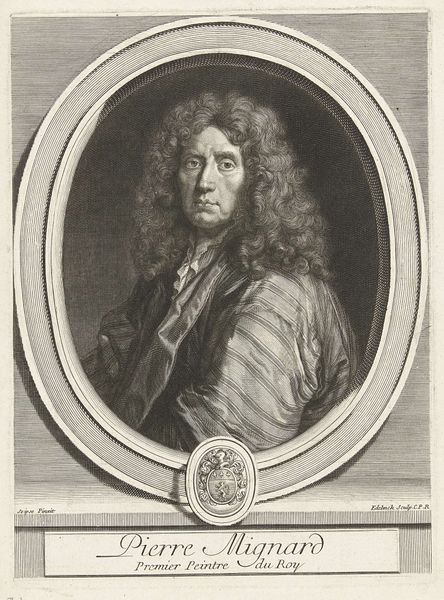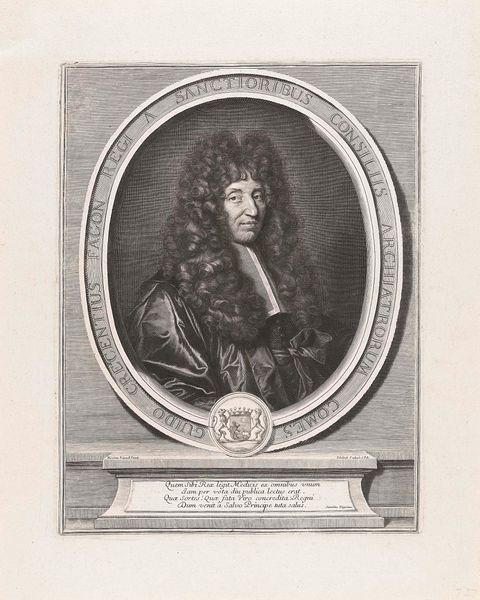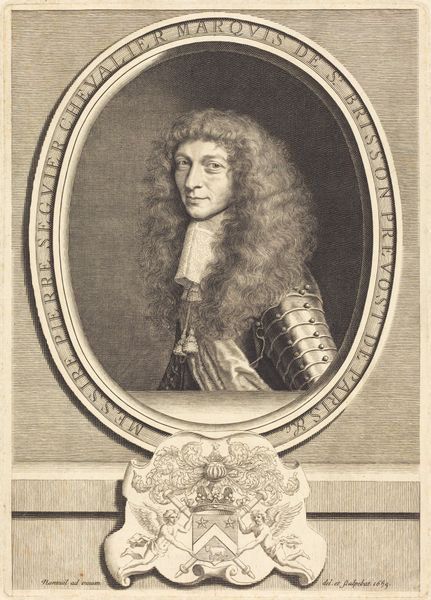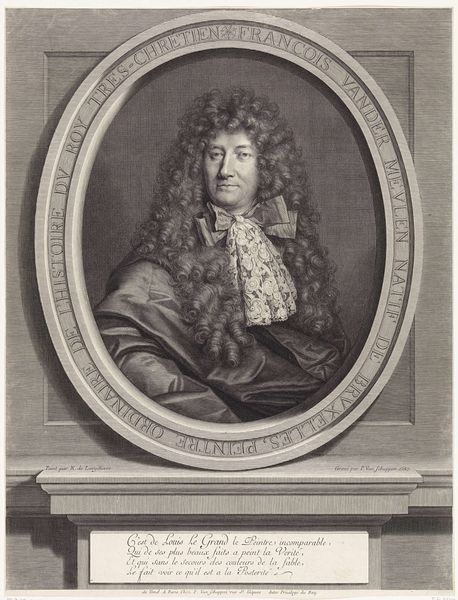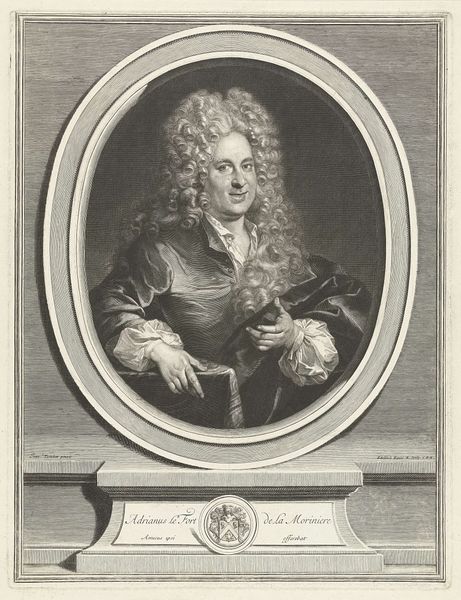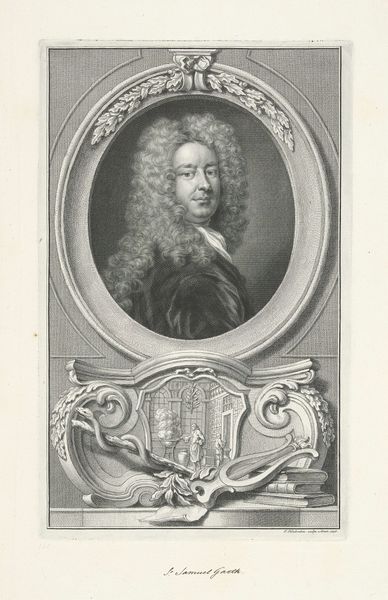
drawing, print, metal, engraving
#
portrait
#
drawing
#
baroque
# print
#
metal
#
sculpture
#
charcoal drawing
#
charcoal art
#
framed image
#
history-painting
#
engraving
Dimensions: height 423 mm, width 337 mm
Copyright: Rijks Museum: Open Domain
This is Gérard Edelinck's portrait of Thomas Alexandre Morant, made with engraving techniques. The stark contrast of the black ink on paper lends the image a striking clarity. Engraving is an intensive process. It begins with a metal plate, typically copper, into which the design is cut using a tool called a burin. Each line is carved with precision, requiring immense skill and control. The plate is then inked, and the surface wiped clean, leaving ink only in the incised lines. Finally, the plate is pressed onto paper, transferring the image. The medium is significant: engraving was essential for disseminating information in early modern Europe, from scientific illustrations to portraits of the elite like Morant. The sharp, reproducible lines speak to a society increasingly reliant on visual communication. Although Edelinck was trained in traditional art practices, such as painting, he chose engraving to make a statement on the emerging public sphere. Understanding the material and the making of this portrait helps us appreciate its historical and social context, reminding us that even seemingly straightforward images are products of specific technologies and cultural values.
Comments
No comments
Be the first to comment and join the conversation on the ultimate creative platform.
